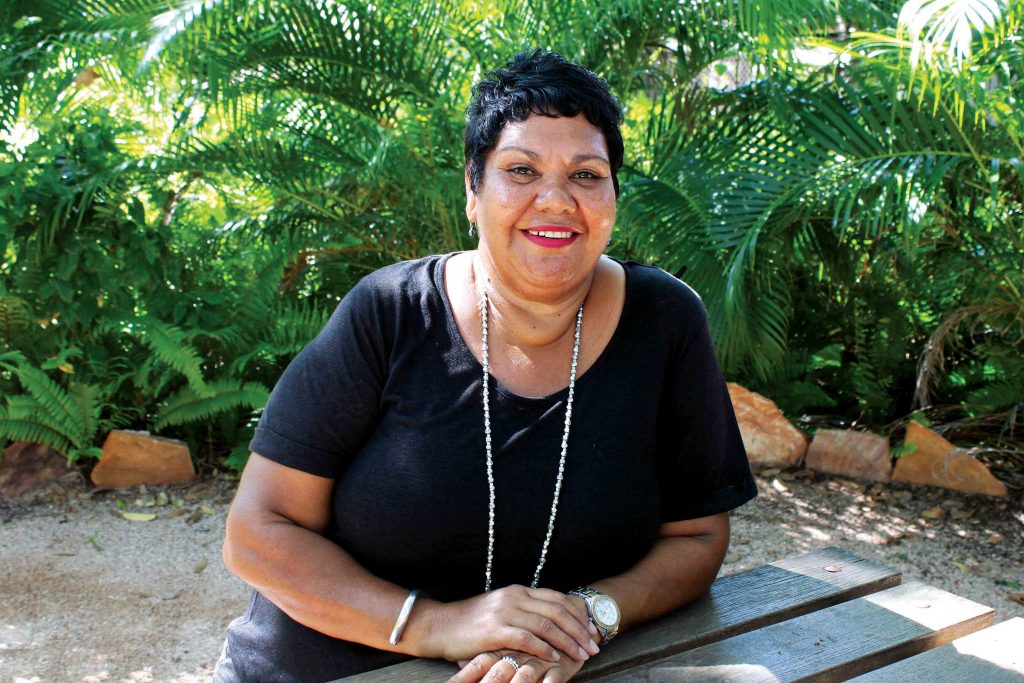
Issue 08 of The Record Magazine took a closer look at our Australian Aboriginal culture among the Catholic community of the Perth Archdiocese and beyond.
Generations of family stories have provided the University of Notre Dame Australia (UNDA) PhD candidate June Oscar with the inspiration to play a key part in improving the lives of people living in Aboriginal communities.
Ms Oscar, who also holds an Order of Australia (AO) is engaged in a research project which aims to uncover the motivations, inspirations and personal struggles on her journey from growing up on a cattle station in the Kimberley to graduating from university, and firmly planting her feet as a central figure of leadership and hope in the Australian community.
Studied through the Nulungu Research Institute on Notre Dame’s Broome Campus, she will use an auto ethno-biographical approach (qualitative research in which an author uses self-reflection and writing to explore their personal experience and connect their story to wider cultural, political and social meanings) to recount her story and those of her mother and grandmother, as Bunuba women and how the messages of inspiration contained within have helped her to contribute to Australian people.
“As a Bunuba woman, I have acquired confidence in my own identity and worldview which has informed me of who I am and my ability to enact change in the community. Even as a child, I was curious about the world and wanted to understand it better,” Ms Oscar said.
“Through my research, I hope to demonstrate that you don’t have to compromise who you are as an Aboriginal person or as a woman, you can dream and aspire to achieve those goals.”
Ms Oscar is a Chief Investigator on the Lililwan Project and Chief Executive Officer of Marninwarntikura Women’s Resource Centre, and was awarded an Order of Australia in 2013 for her ongoing work in improving the lives of Aboriginal people in her community.
In February 2017, she was appointed as the Aboriginal and Torres Strait Islander Social Justice Commissioner at the Australian Human Rights Commission – the first Aboriginal woman to hold this position.
With her current work, Ms Oscar also hopes to explore the impact and manifestation of intergenerational and generational trauma to help inform government responses and to make a change to those people and communities.
“There is a need to design services that are healing, informed and trauma aware. We need to respect that and respond to individuals across society so that we can ensure that people with complex needs have every opportunity to be the best that they can be,” she said.
Reflecting on Notre Dame’s Broome campus, where she has completed both undergraduate and postgraduate degrees in Business, Ms Oscar says it provides a supportive environment for all students to come together to learn about Aboriginal history and culture.
“The greatest gift I have received was Notre Dame making a commitment and creating an opportunity for people like myself to access excellence in higher education through providing those services in the North West,” she said.
“I’m forever grateful to Notre Dame because I was able to combine all my family and professional commitments in the Kimberley with my university education.”
One specific focus throughout her career has been advocating for the health and wellbeing of people living in the Fitzroy Valley in the Kimberley, with a particular focus on Aboriginal children and women. As part of this, Ms Oscar fought successfully for alcohol restrictions in Fitzroy Crossing and continues to advocate for Indigenous Australian languages, social justice, women’s issues and Foetal Alcohol Spectrum Disorder (FASD).